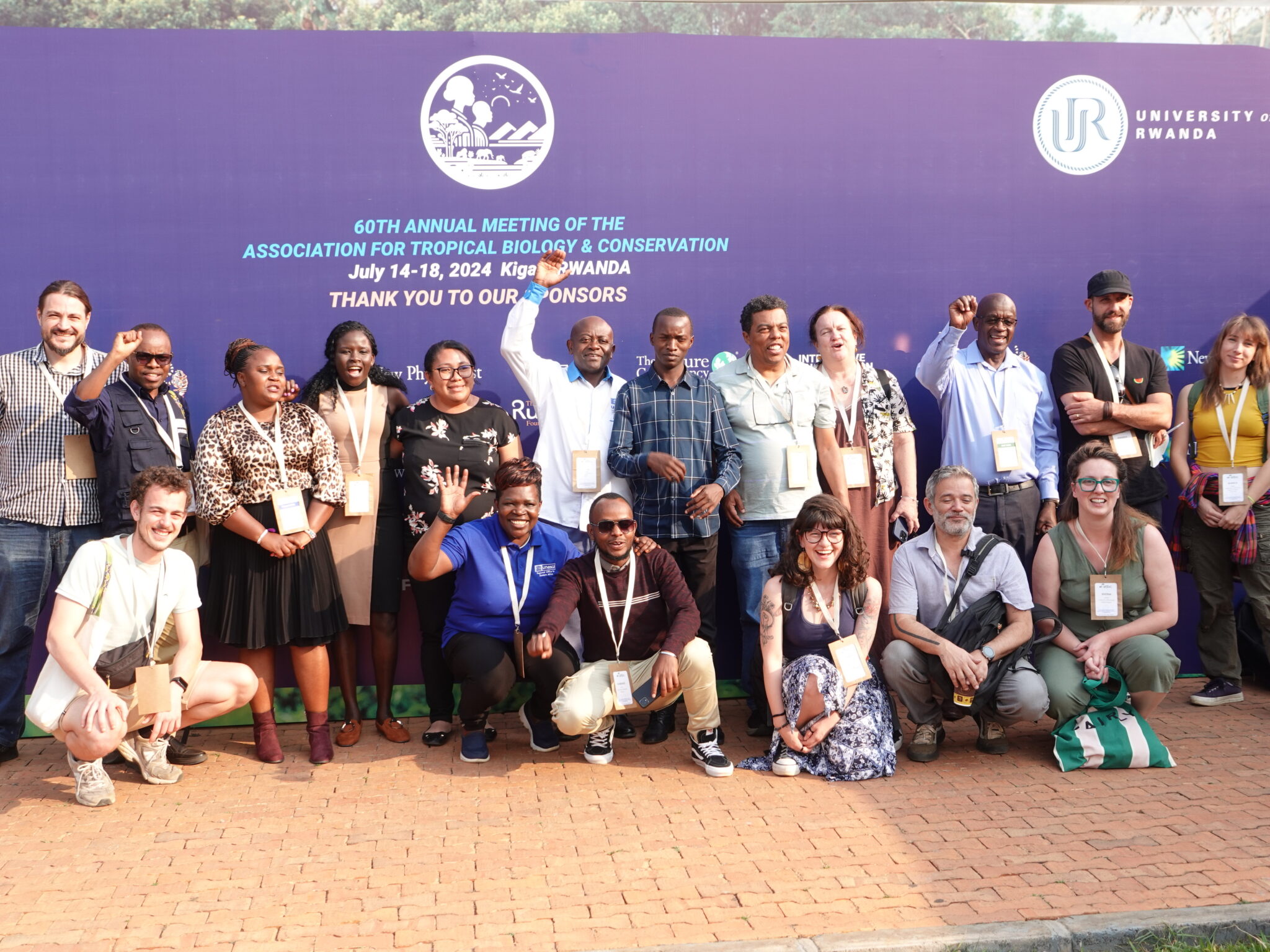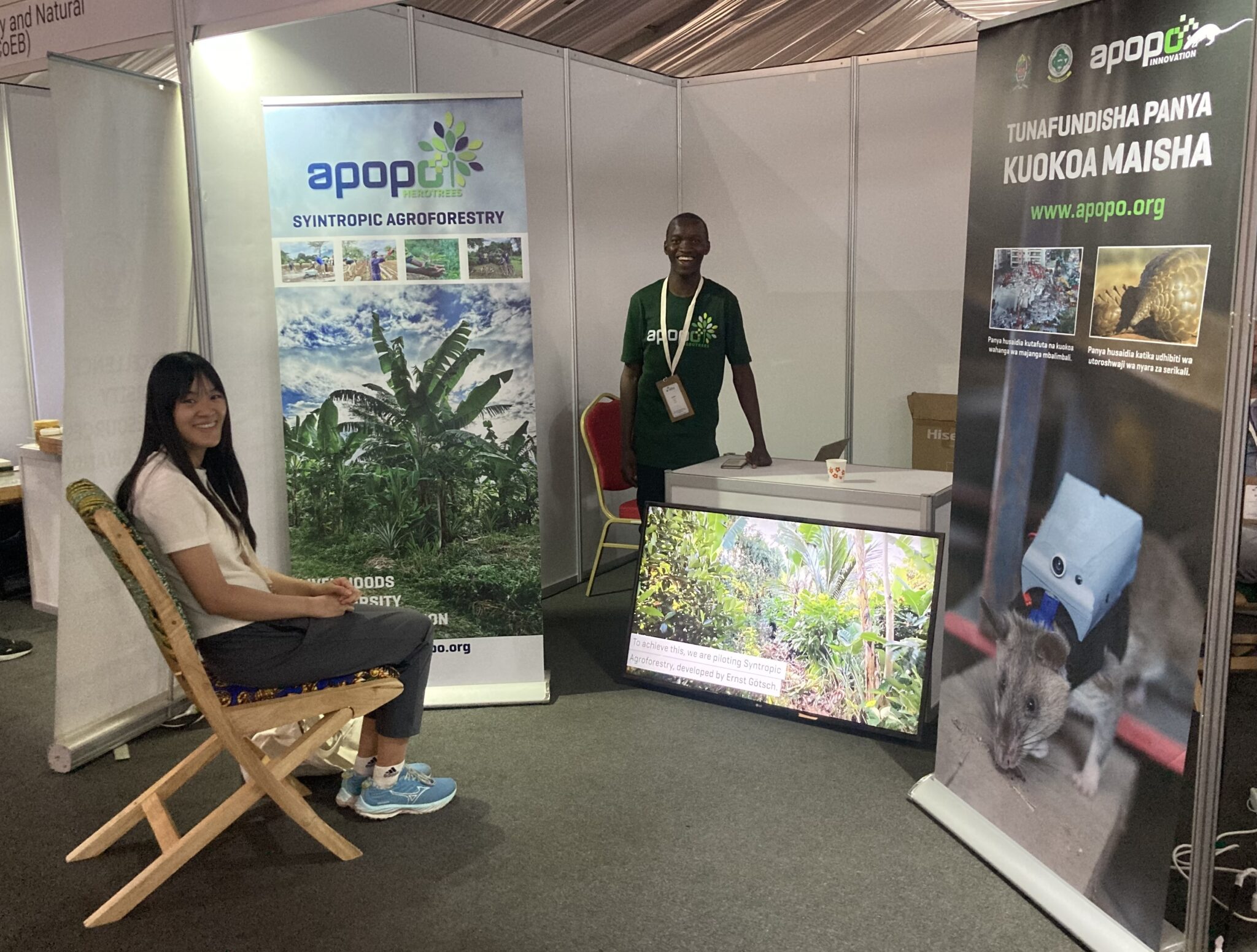APOPO took center stage at the 2024 Association for Tropical Biology and Conservation (ATBC) conference in Kigali, Rwanda, where we introduced our latest groundbreaking initiative: the HeroTREEs program. Known globally for our HeroRATs, we used this platform to highlight how APOPO is expanding its impact from detecting landmines and tuberculosis (TB) to sustainable agriculture and environmental restoration.
Building on decades of experience using African giant pouched rats to detect landmines and tuberculosis, we are now branching into sustainable agriculture with HeroTREEs. Led by our CEO Christophe Cox and HeroTREEs Officer Aron Katosho, at the conference APOPO engaged with global conservation experts, further strengthening our reputation as a leader in both humanitarian and environmental efforts.
“The conference provided a valuable platform to connect with global experts and share our vision. It was an opportunity to showcase how APOPO’s work can go beyond landmine clearance by improving livelihoods, addressing climate change, and restoring ecosystems. We’re excited to collaborate with others who share this commitment to creating lasting, positive impact,” Christophe Cox said on his return from the conference.

Expanding From Detection to Land Restoration
At the ATBC’s 60th Annual Meeting, Christophe highlighted APOPO’s pioneering work in scent animal detection and its potential to address both environmental and human challenges. A major focus of his presentation was our HeroTREEs program, which combines landmine clearance with Syntropic Agroforestry, a regenerative farming method aimed at ecosystem restoration and community sustainability. This innovative approach, based on Ernst Götsch’s principles, has shown promising results in our pilot projects across Tanzania, Ethiopia, and Angola.
HeroTREEs emphasizes full soil coverage using grasses and organic matter, promoting soil health, water retention, and cooling. Our approach of high-density planting at multiple levels maximizes photosynthesis, boosting yields and creating a cooler microclimate that supports plant health. By introducing crops with varied life cycles, Syntropic Agroforestry nurtures biodiversity and ensures sustainable harvests. Additionally, our ecosystem management strategy, which includes timely pruning and harvesting, further enriches soil health while optimizing yield outputs for the benefit of both ecosystems and communities.
Building Momentum for a Sustainable Future
Our HeroTREEs initiative generated significant interest at the ATBC conference, with attendees intrigued by its potential to transform communities. Key takeaways included validation of our integrated approach to mine clearance and sustainable agriculture, recognition of Syntropic Agroforestry’s viability, and enthusiasm for future collaborations. There was also consensus on the need for further research to fully understand its long-term impacts on ecosystems and communities.
With the success of ATBC 2024, APOPO is eager to expand the HeroTREEs program and continue driving sustainable change across Africa and beyond. We look forward to collaborating with global partners, advancing our innovative scent detection work alongside environmental and community restoration efforts.

